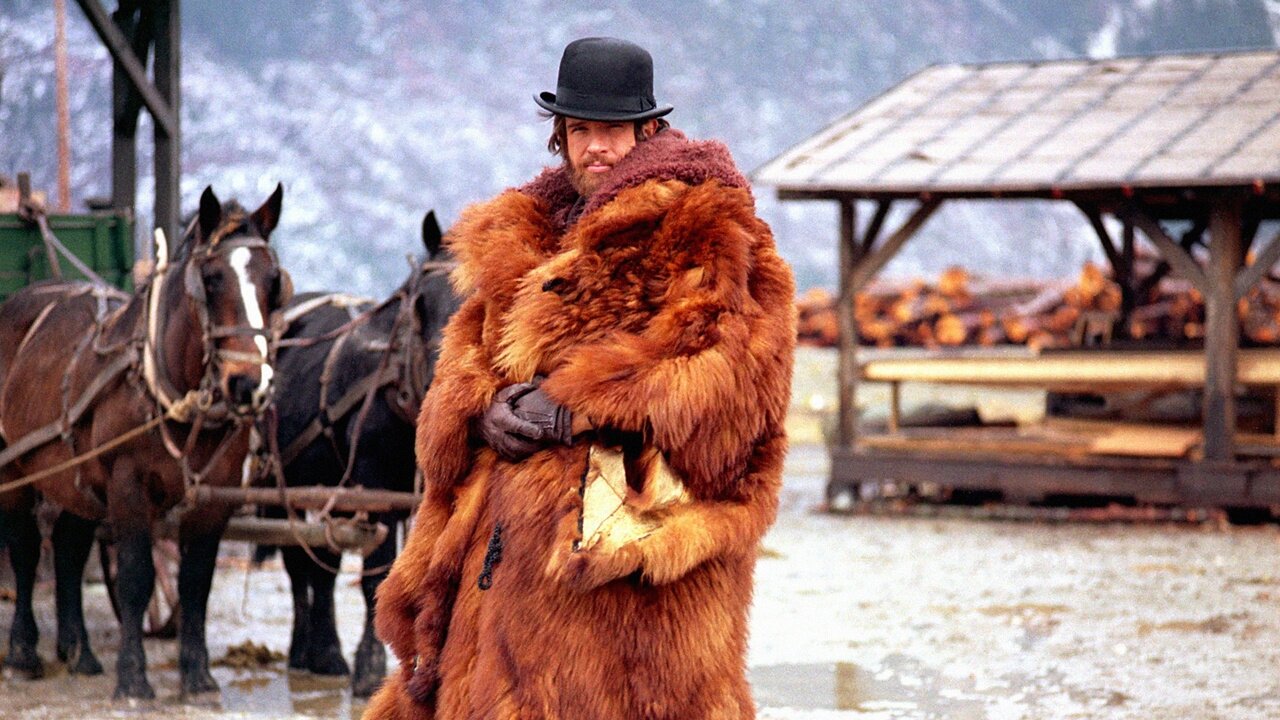McCabe & Mrs Miller at 50 (and why Robert Altman is the best director of the 1970s)
by Fiona Underhill, Contributor
It has long been considered ‘canon’ amongst the film establishment that the 1970s is the best decade for cinema, but the usual films people mention when they cite this ‘fact’ (mainly works by Scorsese and Coppola) – eg. Mean Streets, Taxi Driver, The Godfather, The Conversation, Apocalypse Now – are not necessarily an appealing draw to everyone. Even based on Nashville alone (an all-time favorite film), Robert Altman is my director of the 70s and now that I’ve seen ten of his films from that decade, there really is no contest for me. Altman’s 70s films cover a wide range of genres – war film, detective noir, psychological horror, apocalyptic dystopian sci-fi, music movie and Westerns (or anti-Westerns, which we’ll get to later) – but he never depicts any of these genres in a conventional way, subverting expectations at every turn.
There are few better observers of the human condition than Altman – his unobtrusive style reveals the foibles and fallibilities of his characters, who can’t help but expose their flaws in the private and public moments he captures. Altman was a master at documenting the anonymity of crowds - his camera and microphones scan past conversations happening in pockets and we pick up snippets from the overlapping dialogue that often reveal humans at their most shallow, callous, greedy or judgmental. We see this in the opening scene of McCabe & Mrs Miller (1971), in which we follow the ripples of a rumor spreading through a saloon after the arrival of entrepreneur and gambler McCabe to a small, isolated mining town – “he’s got a big rep.”
McCabe and Mrs Miller is one of two films that could loosely be described as Westerns made by Altman in the 70s – the other being Buffalo Bill and the Indians (or Sitting Bull’s History Lesson) starring Paul Newman. Buffalo Bill is really a film about showbusiness and has more in common with Nashville than with McCabe, although the hubris of the titular characters is something that unites them. Altman described McCabe as an anti-Western – it has no place for heroism or stand-offs between a black hat and a white hat in the middle of a dusty one-horse town. Mrs Miller (Julie Christie) knows what is necessary to survive as a woman in the hostile frontiers of the time, but McCabe (Warren Beatty) wants more than survival – he is greedy and this leads to his downfall. The setting in the Pacific Northwest means the town is first drenched in rain and mud, then the climatic scenes are entrenched in snow. The film opens and closes with the sounds of wind howling and with the finger-plucked guitar of Leonard Cohen, which combine with the soft focus created by (cinematographer) Zsigmond’s “flashing” technique to make the film seem wistful from the off. There is no doubt that McCabe must have influenced Kelly Reichardt’s anti-Westerns - Meek’s Cutoff and especially First Cow, which is also set in the Pacific Northwest, also features Rene Auberjonois and is also full of warnings about the hubris of the American Dream.
The one stand-off that does occur in McCabe is perhaps the most tragic scene in a film that is almost unrelentingly downbeat. Keith Carradine’s wide-eyed and fancy-free cowboy rolls into town, enjoys a night at the whorehouse and then attempts to cross a drawbridge to purchase new socks before going on his way. He is killed for absolutely no reason by a young, anonymous man (who looks equally as cherubic as Carradine) other than to remind the citizens of Presbyterian Church (the amusing name of this small town) that it’s a dog-eat-dog world and some dogs have to remain on top. This scene makes an interesting counterpoint to the finale, in which McCabe engages in a frustrating game of cat-and-mouse with a man sent from a ‘corporation’ to get rid of him as an obstacle. As Altman does frequently in his films that feature huge ensembles, he pulls focus from what we ‘should’ be paying attention to. The Church is on fire and the whole town rallies to try to put it out, so McCabe desperately engaging in a gun battle, in a snow drift barely registers. We struggle to comprehend what is happening, highlighting the futility of the act – Carradine’s sweet cowboy was killed for no reason and McCabe is killed for not much of a better one.
Altman’s cynical, bordering-on-bleak endings were something of a theme in the 70s – reflecting the tumultuous times, even when the films (such as McCabe and Buffalo Bill) were set in a different era. Altman’s centerpiece to the decade – Nashville (1975) – has a particularly shocking ending. The Queen of country music – the fragile Barbara Jean – is assassinated on stage at a political rally and a younger woman who has been desperately trying to make it in the industry takes the microphone, as if it is a baton. She starts to sing “It Don’t Worry Me,” (a song written by Tom, played by Keith Carradine) with both a backing gospel choir and the crowd eventually joining in. This has been interpreted by most as a deeply cynical commentary by Altman on society’s ability to ignore tragedy and loss (eg. the Vietnam War at the time) and blithely carry on, pretending as if nothing is wrong. The ending of McCabe, while pretty bleak – (especially the final shot of Mrs Miller lying, staring glassily in the opium den) perhaps has more in common with what must be Altman’s strangest film (and that’s saying something) – Brewster McCloud (1970). Brewster and McCabe are both ambitious (although motivated by very different things) and both fly too close to the sun, thereby orchestrating their own tragic downfalls. In both films, Altman’s anonymous crowds carry on regardless, oblivious to – or willfully ignoring - the fate of the protagonists.
Altman’s work of the 1970s was hugely ahead of its time, especially in its depiction of fame and celebrity culture (themes he would return to in the 1990s). His view that (in the immortal words of Agent K) “a person is smart, people are dumb, panicky, dangerous animals” – that people in crowds act in much more confidently cruel ways than individuals ever do - has only become more apparent as the years have passed. Whether focusing on the rug being pulled out from under men in MASH (1970), The Long Goodbye (1973), California Split (1974), Buffalo Bill (1976) and Quintet (1979) or on the surprisingly dark psyche of seemingly well-to-do women in That Cold Day in the Park (1969), Images (1972) and Three Women (1977) or exposing societal hypocrisies in Brewster McCloud (1970) and Nashville (1975), Altman chronicled the decade like no other.
McCabe & Mrs Miller is no exception to this – the fact that a group of young men escaped the Vietnam draft by going to Canada to work as extras and set-builders on the film is almost too heartbreakingly perfect to bear. McCabe is a man trying to reinvent himself in a new town, with a new business venture and (he hopes) a new woman at his side – Altman’s view of men reevaluating their lives after the war and how successful they would be at adjusting to new circumstances could be considered pessimistic, at best. Constant reinvention is as baked into the American Dream as the idea of the ‘land of opportunity’ or the ‘self-made man,’ but Altman exposed the human fallibilities that often turned the dream sour. While Altman’s plot summaries may sound depressing, his ability to revel in and reveal the human condition is irresistible – for his films are as intricate and complex as we are.




